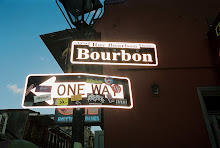Is it too Edgy? Light at the Edge of Darkness
 The new anthology, Light at the Edge of Darkness, has been described as edgy, and in fact is edgy, although that was not the authors' goal. Light gives Christian readers of secular sci-fi, fantasy, horror an alternative: entertaining well-written fiction from a Christian perspective.
The new anthology, Light at the Edge of Darkness, has been described as edgy, and in fact is edgy, although that was not the authors' goal. Light gives Christian readers of secular sci-fi, fantasy, horror an alternative: entertaining well-written fiction from a Christian perspective.The authors of Light write speculative fiction or spec-fic (fantasy, sci-fi, cyberpunk, horror, etc.) that is scripturally sound; it is intended for the Christian audience. It does not evangelize but neither does it cloak Christian beliefs in euphemism and analogy. So, what purpose does Biblical spec-fic serve?
Founder of the Lost Genre Guild, Frank Creed, says this: I'm a longtime fan of spec-fic, especially sci-fi. When shopping Christian bookstores long ago, it didn't take long to realize that there was nothing in my favourite genre on the shelves--so I turned to secular sci-fi. I grew tired of the [often] anti-Christian underpinnings in sci-fi, but the only other option was to quit reading fiction altogether; so I gritted my teeth and ignored anything pointedly anti-Christian. Later, I put my hand to writing sci-fi and fantasy from a Christian worldview. It stood to reason that there were other Christians readers out there who would be interested in a good story that was respectful of Christian values.
 Biblical spec-fic, and by extension, Light at the Edge of Darkness, is not white-washed or diluted secular fiction. The good stuff must be able to hold its own as far as plot and characterization goes. It must be "real" in the fictional sense. It must be meaningful. Let's give an example:
Biblical spec-fic, and by extension, Light at the Edge of Darkness, is not white-washed or diluted secular fiction. The good stuff must be able to hold its own as far as plot and characterization goes. It must be "real" in the fictional sense. It must be meaningful. Let's give an example:"Undeniable" by Canadian horror writer A.P. Fuchs, is horror. It tells the story of a man and son incarcerated in a Chinese jail; the two characters have a choice: renounce Christ or be tortured. These are strong Christians who chose the latter. The torture is palpable and provides the reader with meaningful depictions of the lengths to which the torturers and the strong Christians will go. Without this imagery, it is doubtful that the author would have successfully made his point: how far would you go before compromising your values and beliefs."Undeniable" can hold its own in the secular world as quality entertaining horror and at the same time is Christian in nature! Is the violence depicted in this story gratuitous? No. Is it meaningful? Yes. (The difference between gratitous and meaningful is a whole other issue).
Light at the Edge of Darkness contains sci-fi, fantasy, horror, endtimes, time travel, cyberpunk, dystopia and more. The stories are well-written and have been thoroughly enjoyed by fans of spec-fiction. The stories are edgy; they don't succumb to the writing guidelines of the big Christian publishing houses that intimate that their readers are all delicate butterflies who will perish if they read meaningful description--in the words of one large publisher: "sometimes it is better to tell, not show."
The stories in Light do not break this fundamental rule of writing, rather, they are edgy in the sense that they are written from a Christian worldview yet still maintain the writing quality of secular fiction--these writers, along with many others, are edging Christian fiction into something that is real, something that is entertaining, something that is well-written.
If you are a person who does not like the spec-fic genre in the first place, will you like this book? Debatable. Is it fair to judge this book or indeed, a story like "Undeniable" according to your reading tastes? I say a resounding "no." But . . . are Light at the Edge of Darkness and other novels coming from the Lost Genre Guild too edgy? That answer depends on each individual's reading preferences.
--definition and discussion of Biblical speculative fiction can be found at Wikipedia
Labels: A.P. Fuchs, biblical speculative fiction, christian fiction, controversy, edgy christian fiction, frank creed, Light at the edge of darkness, lost genre guild


0 Comments:
Post a Comment
<< Home